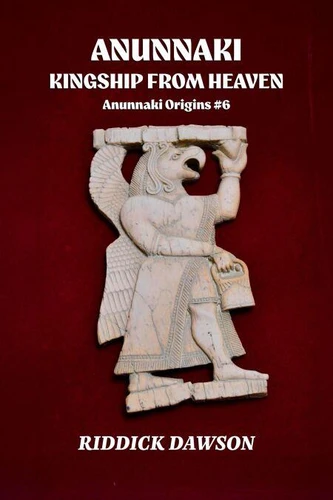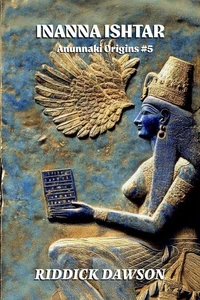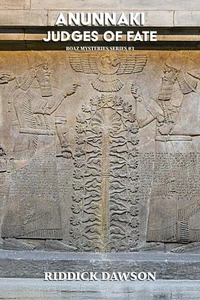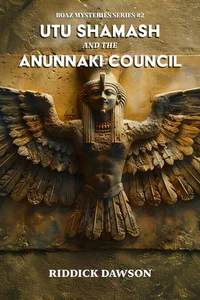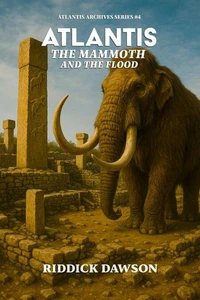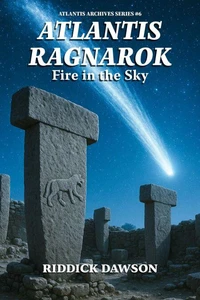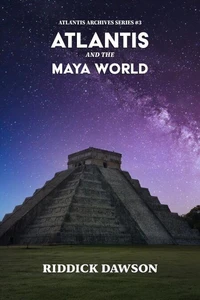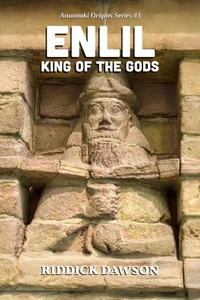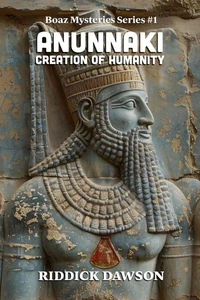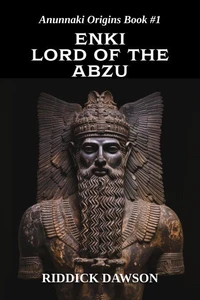Anunnaki, Kingship from Heaven. Anunnaki Origins, #6
Par :Nouveauté
Formats :
Disponible dans votre compte client Decitre ou Furet du Nord dès validation de votre commande. Le format ePub est :
- Compatible avec une lecture sur My Vivlio (smartphone, tablette, ordinateur)
- Compatible avec une lecture sur liseuses Vivlio
- Pour les liseuses autres que Vivlio, vous devez utiliser le logiciel Adobe Digital Edition. Non compatible avec la lecture sur les liseuses Kindle, Remarkable et Sony
 , qui est-ce ?
, qui est-ce ?Notre partenaire de plateforme de lecture numérique où vous retrouverez l'ensemble de vos ebooks gratuitement
Pour en savoir plus sur nos ebooks, consultez notre aide en ligne ici
- FormatePub
- ISBN8231000111
- EAN9798231000111
- Date de parution19/10/2025
- Protection num.pas de protection
- Infos supplémentairesepub
- ÉditeurWalzone Press
Résumé
In the cradle of civilization, where the twin rivers of Sumer met the marshes of Eridu, the ancients recorded a truth that defied time: "After the kingship descended from heaven, the kingship was in Eridu." From those words begins the oldest known history of divine rule-the celestial mandate that shaped empires, faiths, and destinies across millennia. Anunnaki: Kingship from Heaven journeys deep into the heart of Mesopotamian myth and theology, revealing a civilization that saw power not as invention, but as inheritance-a gift bestowed by the gods.
Drawing from the Weld-Blundell Prism and the Sumerian King List, this volume explores the mysterious origins of kingship as a sacred technology of order-where gods walked among men, cities aligned to the stars, and rulers became living vessels of divine decree. From the shining courts of Eridu to the storm-swept plains of Kish, from Alulim's reign of 28, 800 years to the cosmic deluge that reset the world, this book unveils how kingship itself was viewed as a descending current from the heavens, a divine architecture entrusted to humanity.
Through poetic scholarship and vivid reconstruction, Anunnaki: Kingship from Heaven bridges myth and history, theology and archaeology. It reveals the profound Sumerian belief that civilization began not with the rise of human ambition-but with the descent of divine wisdom. To read it is to rediscover a forgotten covenant: that every true ruler is but a reflection of the order first established in the stars, and that kingship-like light-forever falls from above.
Drawing from the Weld-Blundell Prism and the Sumerian King List, this volume explores the mysterious origins of kingship as a sacred technology of order-where gods walked among men, cities aligned to the stars, and rulers became living vessels of divine decree. From the shining courts of Eridu to the storm-swept plains of Kish, from Alulim's reign of 28, 800 years to the cosmic deluge that reset the world, this book unveils how kingship itself was viewed as a descending current from the heavens, a divine architecture entrusted to humanity.
Through poetic scholarship and vivid reconstruction, Anunnaki: Kingship from Heaven bridges myth and history, theology and archaeology. It reveals the profound Sumerian belief that civilization began not with the rise of human ambition-but with the descent of divine wisdom. To read it is to rediscover a forgotten covenant: that every true ruler is but a reflection of the order first established in the stars, and that kingship-like light-forever falls from above.
In the cradle of civilization, where the twin rivers of Sumer met the marshes of Eridu, the ancients recorded a truth that defied time: "After the kingship descended from heaven, the kingship was in Eridu." From those words begins the oldest known history of divine rule-the celestial mandate that shaped empires, faiths, and destinies across millennia. Anunnaki: Kingship from Heaven journeys deep into the heart of Mesopotamian myth and theology, revealing a civilization that saw power not as invention, but as inheritance-a gift bestowed by the gods.
Drawing from the Weld-Blundell Prism and the Sumerian King List, this volume explores the mysterious origins of kingship as a sacred technology of order-where gods walked among men, cities aligned to the stars, and rulers became living vessels of divine decree. From the shining courts of Eridu to the storm-swept plains of Kish, from Alulim's reign of 28, 800 years to the cosmic deluge that reset the world, this book unveils how kingship itself was viewed as a descending current from the heavens, a divine architecture entrusted to humanity.
Through poetic scholarship and vivid reconstruction, Anunnaki: Kingship from Heaven bridges myth and history, theology and archaeology. It reveals the profound Sumerian belief that civilization began not with the rise of human ambition-but with the descent of divine wisdom. To read it is to rediscover a forgotten covenant: that every true ruler is but a reflection of the order first established in the stars, and that kingship-like light-forever falls from above.
Drawing from the Weld-Blundell Prism and the Sumerian King List, this volume explores the mysterious origins of kingship as a sacred technology of order-where gods walked among men, cities aligned to the stars, and rulers became living vessels of divine decree. From the shining courts of Eridu to the storm-swept plains of Kish, from Alulim's reign of 28, 800 years to the cosmic deluge that reset the world, this book unveils how kingship itself was viewed as a descending current from the heavens, a divine architecture entrusted to humanity.
Through poetic scholarship and vivid reconstruction, Anunnaki: Kingship from Heaven bridges myth and history, theology and archaeology. It reveals the profound Sumerian belief that civilization began not with the rise of human ambition-but with the descent of divine wisdom. To read it is to rediscover a forgotten covenant: that every true ruler is but a reflection of the order first established in the stars, and that kingship-like light-forever falls from above.

